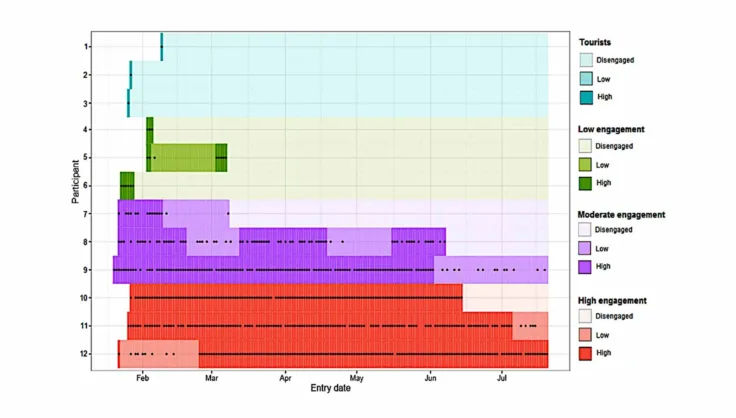
uMotif platform proven to engage patients in studies
A paper published in the Journal of Medical Internet Research (JMIR) has shown that uMotif is the most effective research platform to engage patients to capture data for new insights.
The paper, based on the ‘Cloudy with a Chance of Pain’ study in rheumatoid arthritis and chronic pain, shows that patients continue to engage with the platform over an extended period – helping researchers reduce drop outs and capture more data in studies.
The ‘Cloudy’ study used the uMotif platform to capture patient’s symptoms, outcomes and local weather data. The data is being analysed by the team at Manchester University to understand if there is an association between the weather and symptoms of pain and arthritis.
The study was launched by Manchester University in January 2016, using uMotif’s patient-centric technology to capture more than 5.1 million data points from over 13,500 patients in the UK. Patients used their own devices to take part, and provided ethics-approved e-consent in the app.
The paper shows that around 1 in 7 patients continued to enter data for over 6 months. This incredibly high level of daily retention compares to only 1 in 10 patients completing more than a week of data in other studies.
Our experience is that such high levels of interest, engagement and retention is due to two main factors:
Firstly, the technology used by patients was simple, easy to understand and compelling. Providing a delightful digital experience keeps patients coming back to enter more data, more often; and
Secondly, patients understood how their data helps answer a medical question of interest and relevance to them. The study was designed around patients, included patients in the setup, and sent out weekly newsletters to feedback to patients throughout the study.
For us, this perfectly embodies what ‘patient-centricity’ really means – designing a great experience for patients, that also provides researchers with data for new insights. We’re delighted that the highly positive results demonstrate that a patient-centric approach delivers more value for all stakeholders.
Link to study: https://mhealth.jmir.org/2017/11/e168
